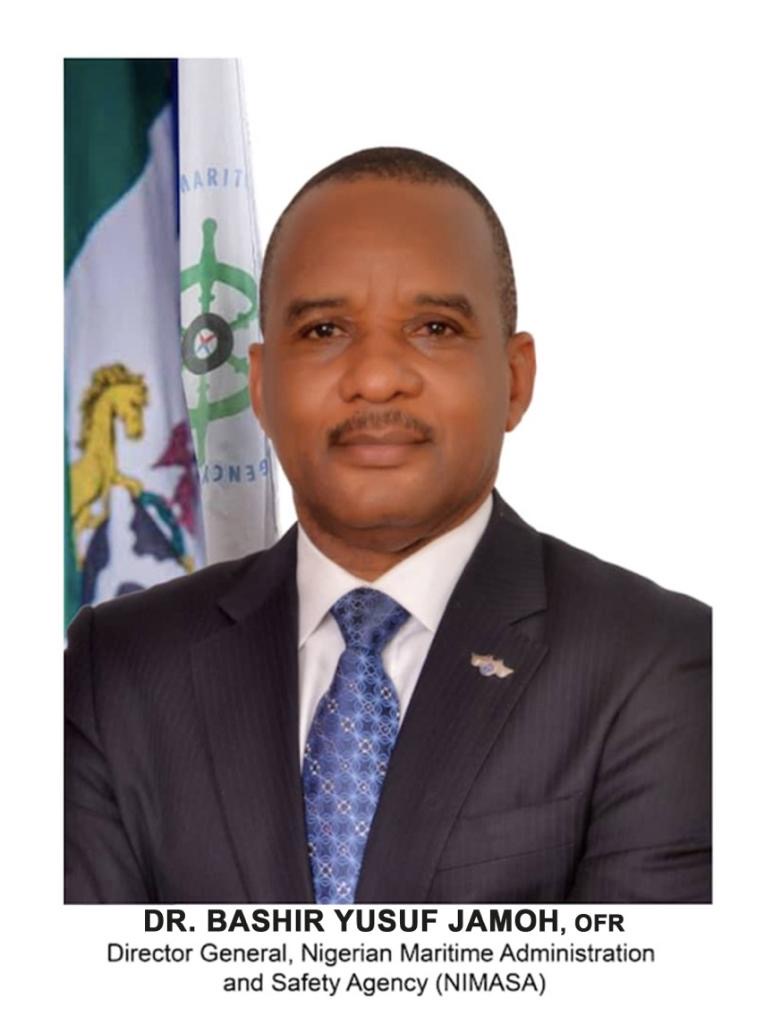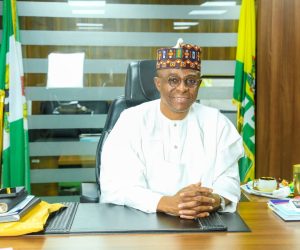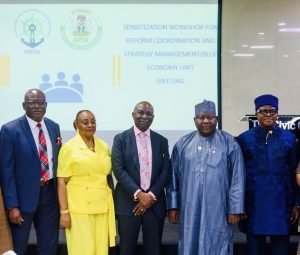NIMASA : Ghana Maritime Authority To Understudy Cabotage Regime

••We will take GMA through the rudiments of Cabotage regime – Says Jamoh
(By Silas Onuoha )
Nigerian Maritime Administration and Safety Agency (NIMASA) on Tuesday welcomed Ghana Maritime Authority (GMA)to Understudy The Cabotage Regime.
In his keynote address, the Director General of NIMASA Dr. Jamoh (OFR) informed.
“It is my pleasure to welcome you to Nigeria for this special agenda to understudy our Cabotage operations. While we understand that the period might be too short for you to understand the totality of our operations as it relates to our Cabotage regime, this would form a platform for the Ghana Maritime Authority (GMA) and NIMASA to continue to engage on how to strengthen this protectionist approach towards building indigenous capacity for the maritime sectors of both countries.
“Furthermore, your visit to understudy us cannot come at a better time as the President of Ghana, Nana Akuffo-Ado recently convened an extraordinary session of the heads of state and government of the Gulf of Guinea commission in Accra where President Muhammadu Buhari gave a Keynote Address on “strategies for strengthening peace and security in the fight against maritime-related crimes in the region”.
The DG went on.
“This simply shows how important the two nations take maritime as a catalyst to the development of our economies.
Also, there is the need for us to continue to engage occasionally so that we can share ideas on how we can collectively assist our countries’ Maritime Administrations in achieving their core mandates, thereby ensuring global best practices in the affairs of the Gulf of Guinea maritime sector.
According to Dr. Jamoh,”as regulatory and enforcement Agency, we are committed to ensuring that our core mandates are accomplished in such a manner that will provoke economic development for Nigeria, while growing indigenous capacity in line with international best practices.
“I am sure at some point you might all have read about the Coastal and Inland Shipping (Cabotage) Act 2003, which came into force in Nigeria 2004 and it is essentially a local capacity-building law. Its major aim is to empower Nigerians for greater participation in maritime trade. This law is based on four key pillars; ensuring that vessels that operate in coastal waters within the country’s territory are built in Nigeria, owned by Nigerians, manned by Nigerians, and registered in Nigeria.
“I will not be elaborating too much on these four pillars as I am very sure you will be taken through the nitty-gritty of the pillars of cabotage. I assure you that we have good hands to take you through all the rudiments of the Cabotage regime, which will help you replicate same in your country.
It will interest you to know that, there has been an increase in the number of local participations in our maritime domain since the advent of the Cabotage Act as about 68 per cent of vessels trading within the country’s maritime space are Nigerian-flagged. This indicates that the Agency is doing a lot in ensuring that proper attention is paid to the essence of the Cabotage mandate.
The NIMASA boss did not fail to mention about the Cabotage Vessel Financing Fund (CVFF).
“This is a special Fund that is basically obtained through the collection of 2% surcharge from the total contract sum performed by any vessel engaged in Cabotage trade. This Fund shall be utilized to offer financial assistance, create access to funding by financial institutions with the aim of increasing indigenous ship acquisition capacity for qualified Nigerians. The understudy and consequent replication of this element of our Cabotage regime shall help your country fund indigenous ship and other maritime assets acquisition,”he said.
On his part, the ED ML&CS, Engr. Victor Ochei, during his welcome address said.”Over the years as an Agency, we have evolved in many ways to get us this enviable level in the aspect of our Cabotage regime. These achievements did not come without its pitfalls and struggles, which we have learned to overcome overtime by attaining expertise through consistency.
“More importantly, our achievements, processes, knowledge acquired and experience are what we will be sharing with you within this short period of time. Luckily, you will be gaining these set of skills without the inclusion of the pitfalls we had to learn from to attain our current level.
He added;
“In the course of this under-study, we chronologically intend to take you on a historical sojourn or overview, enlighten you on our famous ‘4 Pillars of Cabotage; we shall put you through the enabling legislations and instruments that empowers us to operate as well as our enforcement procedures amongst others.
Going further, he assured NIMASA continuous support to Ghana Maritime Authority (GMA), in its strive to grow capacity in Ghana. “We know that the ripple effects of successful maritime sector to the growth and development of the African economy cannot be over emphasized. It simply means Africa is waiting for us,”he said.
He therefore urged members of Ghana Maritime Authority, who are here to understudy The Cabotage Regime, to make use of this opportunity to freely profit from it.
In her vote of thanks, the Director Cabotage Services, applauded the Captain of MV NIMASA, the DG of NIMASA, Dr. Bashir Jamoh (OFR) for his steadfastness and commitment to the development of maritime sector, even at the most difficult period.
In her words :
“We cannot thank you enough, DG, for the support you have given us to ensure the indigenous capacity is grown. This is evident in your resolve to ensure that the CVFF is disbursed to deserving and qualified operators. We pray that God would continue to guide you as you steer the vessel of our maritime sector to an enviable height.





